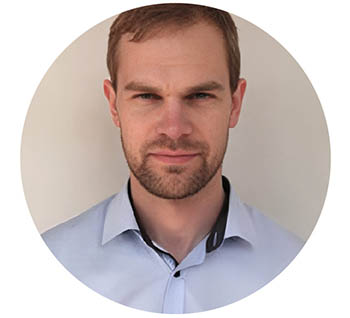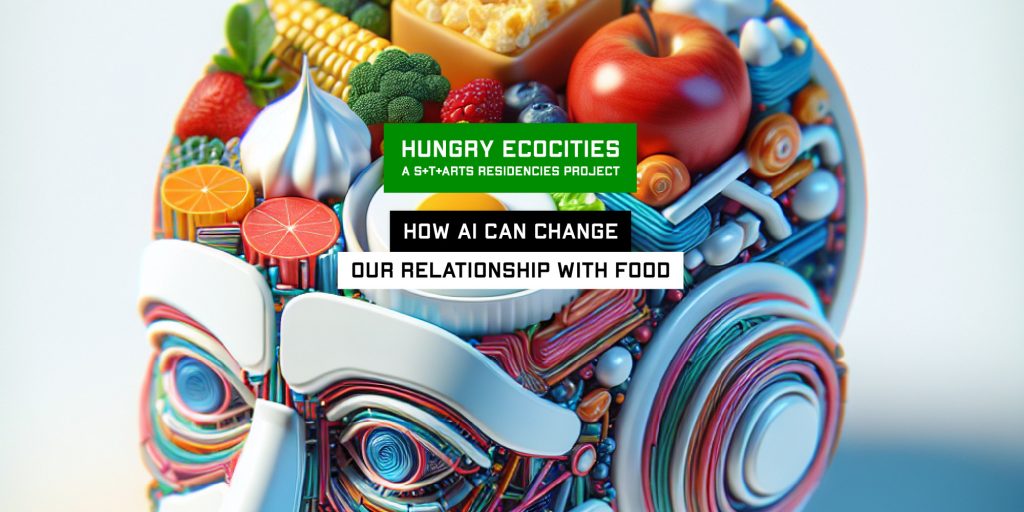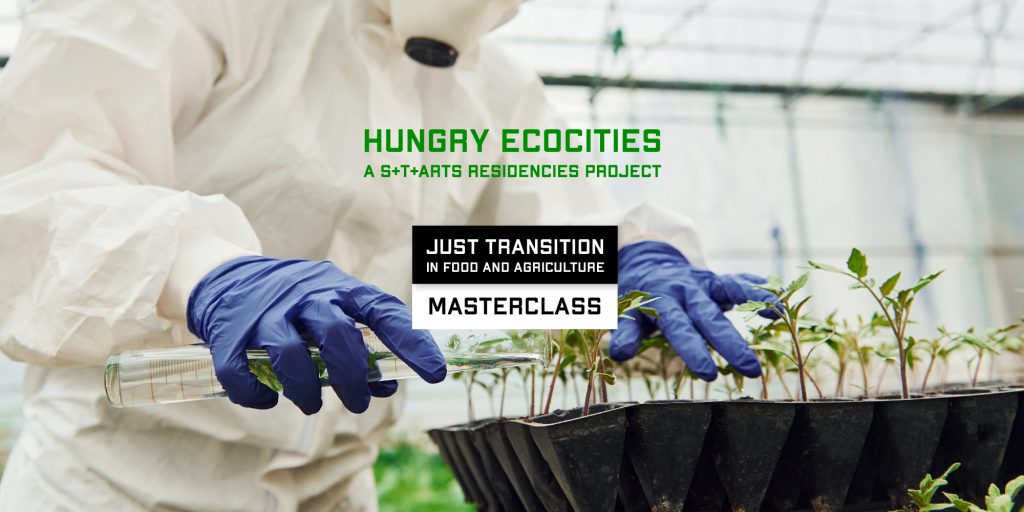Interview with KU Leuven
Welcome to our interview series with the partners running HUNGRY ECOCITIES. In this interview with Jens Bürger & Robin De Croon we will learn more about the KUL organisation and their role in the project!
 | Dr Jens Bürger is currently engaged in the development and sustainable long-term operation of an AI institute, focusing on conceiving broader strategies and implementing corresponding initiatives. His role involves bringing together diverse researchers in interdisciplinary settings, supporting and enabling them in the definition of new collaborations, and learning from these interactions to refine effective approaches for fostering innovative, bottom-up research projects. |
 | Dr Robin De Croon is a research manager on intelligent user interfaces at the KU Leuven augment research group. He is constantly scouting for opportunities to connect the innovative Human-Centered AI research of the group with industry needs. Robin obtained his PhD in Computer Science in 2017 at KU Leuven. In his PhD, he explored, designed, developed, and evaluated a suite of information visualization tools for understanding, exploring, explaining, and disclosing health information. His research interests include human-centred AI, intelligent user interfaces, learning analytics, and information visualization. |
Hello, Jens and Robin, glad you joined. You represent Leuven.AI in the consortium, in which a group of different researchers are involved. Please share a brief introduction to the expertise this team of researchers brings to the Hungry EcoCities project.
When we started talking about this project, as AI researchers, we indeed had to think for a minute to understand which AI research expertise is the most relevant in the project context. Many Leuven.AI researchers are involved in fundamental AI research, so thinking of AI in terms of art-driven applications is not everyone’s default mode of thinking about AI. We then broke down a rough idea of relevant value chains in agrifood systems with an eye for technological trends. The first set of expertise we could offer was in operations research. For example, in the context of supply chains of perishable food items that require fast transfer from farm to fork. Here, the use of AI algorithms, specifically reinforcement learning, holds promise to optimize such time-critical processes in complex supply chains. Related to the operation of supply chains are working conditions. A group from the sociology department joined the Hungry EcoCities project based on their expertise on working conditions in digitally-mediated work. Well-known examples here are food delivery services that use algorithms to control the schedule and rhythm of the people delivering food. We could ask, what is the impact of algorithmic optimization on one side of the supply chain on the working conditions on the other end of the supply chain? From the consumer side, there is more potential for AI and digital technologies. One of them concerns the question of how consumers should interact with the growing wealth of information. How should we design applications or interactive systems that support consumers in making individualized decisions in light of more and more considerations: taste preferences, nutritional facts, environmental impact, perishability, etc? Thinking this further, the fourth group involved in the Hungry EcoCities project researches augmented and virtual reality. This enables the Hungry EcoCities project to ask if AR and VR can be used to experience food, food preparation, or food consumption in new ways.
The Humanizing Technology Experiment project creates a team of artists, studios, experts in art-driven innovation and researchers. What benefits do you get from this type of cooperation?
For us as researchers, such collaborations are very interesting for at least two reasons. First, it provides insights into how different groups of entrepreneurs, innovators, etc., think of using technology to shape the future. The technologies we research are a part of such futures, and we have our ideas on how our research can shape the future. But it is fascinating to see how others look at the same technologies differently, and about this, the second aspect concerns the real-world application of scientific outcomes. It is a very appealing scenario to see the technologies we develop, and we believe in adding value to society.
“There’s an escalating demand for the development of tools to help comply with the AI Act, particularly regarding the mitigation of bias and the assurance of fairness, transparency, and human oversight.“
What is the ambition of Leuven.AI to be part of this project?
In the context of Hungry EcoCities, Leuven.AI is a facilitator between the overall project consortium and the participating KU Leuven researchers. As already outlined above, the expertise we bring to this project, while all on AI, varies greatly. This is also shown in the fact that our four researchers are from three faculties. Leuven.AI was created, among other reasons, to support the identification of distributed expertise and the subsequent forming of interdisciplinary research teams. The Hungry EcoCities project is, therefore, a demonstration of the value that an interdisciplinary institute can bring to research and innovation, but also how applied AI research can increase the socio-economic impact of a wide range of AI expertise at KU Leuven. The Hungry EcoCities project is an opportunity to act as a seed for future projects. It created an innovative channel for transferring AI expertise through artistic projects to achieve common sustainability goals. The perspectives gained from interactions within the HEC consortium and the artists provide new use cases that can be integrated into the corresponding educational activities of the involved PIs.

Responsible AI is an important pillar in the project. Can you elaborate on how you will work on AI literacy within the HEC lab?
Amidst the rapid advancements and widespread acclaim of AI applications like ChatGPT, Midjourney, and Microsoft’s forthcoming 365 Copilot, there is an increasing awareness of the potential adverse impacts of AI’s unchecked use in society. The European Commission is nearing completion of a new regulatory framework known as the “AI Act“. This act categorizes AI applications into four risk-based groups: unacceptable (e.g., mass, facial recognition, social scoring), high (e.g., transport, education, employment, public services), limited (e.g., chatbots), and minimal risk (e.g., games, spam filters). Given the imminent implementation of the AI Act, it’s vital to start aligning with its stipulations. However, the act presents challenges, such as the lack of clear definitions for unbiased AI and specific instructions for maintaining transparency and human oversight. There’s an escalating demand for the development of tools to help comply with the AI Act, particularly regarding the mitigation of bias and the assurance of fairness, transparency, and human oversight. These tools will leverage recent research conducted by project partners in areas like fairness in AI, explainable AI, and human-computer interaction. As a result of these emerging needs and challenges, Augment, a Human-Computer Interaction (HCI) research group within Leuven.AI, is an important partner in the project. Their involvement is primarily driven by the necessity to develop and implement tools that align with the AI Act’s mandates, particularly those focusing on transparency and human oversight. Augment’s expertise in HCI and human-centred AI design is crucial in navigating these complex requirements and contributing to the development of AI applications that are not only technologically advanced but also ethically responsible and aligned with legislative guidelines.
Could you select one of the HTE experiments and explain your expectations and reflections?
As a technical advisor in the Climate Cookbook led by Ling Tan, our role as a human-centred AI research group takes on an exciting dimension. We are particularly intrigued by the challenge of visualizing and understanding the multifaceted decisions involved in substituting ingredients with more sustainable approaches while ensuring an authentic culinary experience. We will focus on exploring explainable AI-driven solutions that assist individuals in making informed choices about recommended ingredient substitutions. This approach can provide valuable insights into consumer behaviour and preferences, shedding light on how people prioritize environmental sustainability in their daily lives, particularly in the context of deeply-rooted cultural practices like cooking. Through this project, we aspire to contribute to a broader understanding of sustainable living that respects and integrates cultural heritage, using XAI as a bridge between modern ecological needs and traditional culinary arts.
This project has received funding from the European Union’s Horizon Europe research and innovation programme under grant agreement 101069990.

